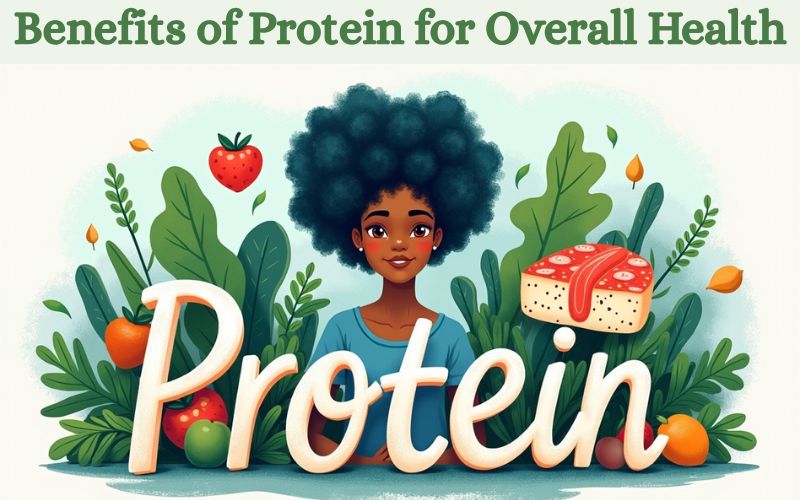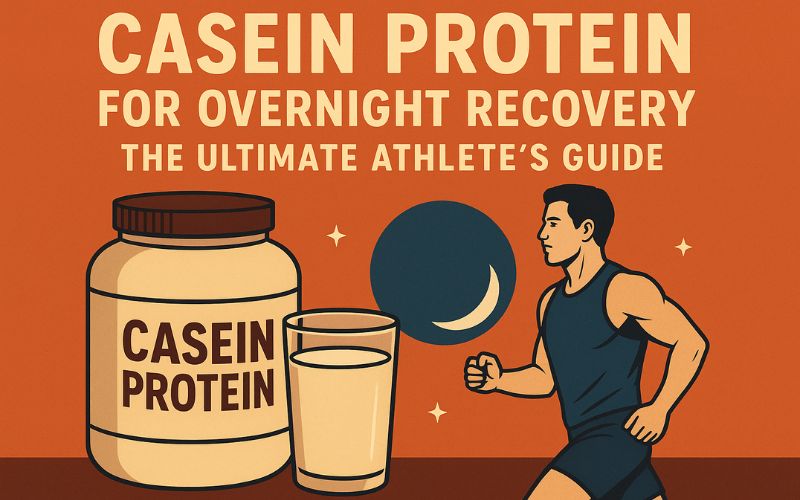Protein is essential. It’s the building block of life, literally. From muscle repair to immune health, it’s everywhere in our body. Today, protein supplements are popular, with whey and collagen leading the charge. But which is right for you?
Table of Contents
What is Whey Protein?
Whey protein comes from milk. When milk is processed to make cheese, whey is the leftover liquid. It’s rich in all nine essential amino acids. This means it helps with muscle growth and recovery. Whey is a complete protein. That’s one reason it’s a favorite in fitness circles.
What is Collagen Protein?
Collagen, on the other hand, comes from animals. It’s the most abundant protein in our body. You’ll find it in skin, tendons, and bones. But collagen protein isn’t a complete protein. It’s missing some amino acids, but it shines in other areas. It’s great for joint, skin, and gut health.
Nutritional Profile: How They Compare
When we delve into the nutritional makeup of whey and collagen proteins, key differences start to emerge.
- Whey protein, derived from dairy, is a complete protein. This means it contains all nine essential amino acids our bodies can’t produce on their own, which makes it especially beneficial for muscle repair and growth.
- One of whey’s standout features is its high content of branched-chain amino acids (BCAAs), particularly leucine. BCAAs play a pivotal role in triggering muscle protein synthesis—a process crucial for muscle recovery and development. This makes whey the go-to protein for athletes, bodybuilders, and anyone aiming to build or maintain lean muscle mass.
- Whey protein is also fast-digesting. When consumed, it rapidly breaks down into amino acids, which are quickly shuttled to your muscles. This fast action makes it ideal for post-workout consumption, where your muscles are primed for repair and growth.
Collagen protein, however, comes from animal connective tissues, such as bones and cartilage, and is not a complete protein.
- It lacks certain essential amino acids, such as tryptophan, that are necessary for muscle synthesis. But what collagen lacks in muscle-building prowess, it makes up for in its unique amino acid profile.
- Collagen is rich in glycine, proline, and hydroxyproline, amino acids not found in high quantities in other proteins.
- These specific amino acids are key for promoting skin elasticity, hydrating the skin, and improving the strength of joints, tendons, and ligaments. This makes collagen a go-to for those focused on skin health, joint function, and anti-aging effects.
In terms of protein content per serving, whey often contains a higher amount of protein compared to collagen, typically around 20-30 grams per serving, whereas collagen averages around 10-20 grams. However, collagen shines in its versatility and ability to target different parts of the body that other proteins, like whey, don’t touch.
Benefits of Whey Protein
Whey protein stands tall as a muscle-building powerhouse. Its high content of essential amino acids, particularly leucine, ensures that it rapidly stimulates muscle protein synthesis, which is the body’s natural process of repairing and building muscle fibers after exercise.
- For athletes and gym-goers, this is a game-changer. It allows for faster recovery times, reduced muscle soreness, and increased lean muscle mass over time.
- Research has consistently shown that whey is one of the most effective proteins for promoting muscle growth, which is why it’s a staple in many fitness routines.
- But the benefits of whey protein extend far beyond just muscles. Whey is also known to strengthen the immune system due to its rich content of immunoglobulins and lactoferrin, which are immune-boosting compounds found in milk.
- These compounds help to fight off infections, making whey not just a tool for physical strength but for overall health.
- Another lesser-known benefit of whey protein is its effect on cardiovascular health.
- Studies suggest that they can help lower blood pressure in people with hypertension, thanks to its bioactive peptides, which have been shown to improve blood vessel function and reduce blood pressure levels.
- Moreover, whey protein has been linked to improved metabolic health, as it can help reduce appetite, regulate blood sugar, and even whey assist in weight management.
Benefits of Collagen Protein
Collagen protein, while not as flashy as whey when it comes to building muscle, brings its own set of invaluable benefits.
- Collagen’s primary strength lies in promoting skin, hair, and joint health. As we age, our body’s natural collagen production declines, leading to the visible signs of aging like wrinkles, sagging skin, and stiff joints.
- Supplementing with collagen can help to counteract this decline. Studies have shown that regular collagen supplementation can significantly improve skin elasticity, reducing the appearance of wrinkles and promoting a more youthful complexion.
- Athletes, too, have found collagen to be a game-changer—not for building muscle, but for protecting joints.
- Collagen helps to support cartilage regeneration and maintain joint flexibility. By enhancing the strength of tendons and ligaments, collagen supplementation can reduce joint pain and improve overall joint health, which is especially beneficial for those engaged in high-impact activities or who suffer from joint stiffness due to age.
- Collagen is also beneficial for gut health. Its amino acids, particularly glycine, have been shown to strengthen the gut lining, which can help with digestion and reduce symptoms of leaky gut syndrome.
- This makes collagen an excellent option for those who want to support not just their outward appearance but also their internal health.
Key Differences in Their Function
Whey and collagen proteins, while both valuable, function in fundamentally different ways within the body.
- Whey protein is designed for fast action. Once consumed, it’s quickly absorbed into the bloodstream and delivered to muscle tissues, making it ideal for situations where immediate recovery and repair are necessary, such as post-workout.
- The quick absorption and high levels of BCAAs make whey especially suited for muscle hypertrophy and athletic performance. If your primary goal is to build muscle or recover from intense exercise, whey protein is the perfect choice.
In contrast, collagen works at a slower, more sustained pace.
- Rather than targeting muscle recovery, collagen focuses on long-term improvements in skin, joints, and connective tissues.
- Its effects are not immediate, but consistent supplementation can lead to significant changes in the health of your skin, the strength of your joints, and the durability of your ligaments and tendons.
- This makes collagen more of a long-term investment in your health, targeting areas that whey protein doesn’t address.
Another key difference is in digestion and absorption. Whey is quickly digested, making it ideal for quick bursts of recovery. Collagen, however, digests more slowly and provides a steady supply of amino acids to support the skin, joints, and bones over time. This makes collagen an excellent choice for people looking for sustained health benefits that go beyond muscle.
Which One Should You Choose?
Choosing between whey and collagen depends on your individual goals. If muscle growth and recovery are your main focus, whey protein is the clear winner. Its high concentration of BCAAs and fast-absorbing nature make it perfect for anyone looking to repair and build muscle after a workout. Whey is the go-to for athletes, bodybuilders, or anyone in need of post-exercise muscle support.
However, if you’re more concerned with joint health, skin improvement, or overall anti-aging benefits, collagen is the better option.
Collagen’s unique amino acid profile makes it a great choice for those dealing with joint pain or looking to enhance skin elasticity and hydration. Collagen also strengthens connective tissues, making it a solid choice for injury prevention and joint maintenance.
The Best Time to Take Whey or Collagen
When it comes to timing, whey protein is best consumed right after a workout. This is when your muscles are in need of quick nourishment, and whey’s fast-digesting properties ensure that amino acids are delivered to your muscle tissues without delay. This is also known as the “anabolic window,” the period when muscle recovery and growth are at their peak.
On the other hand, collagen isn’t tied to exercise timing. It can be consumed in the morning or evening, depending on your preference. Many people enjoy mixing collagen into their morning coffee or smoothie, as it’s flavorless and blends seamlessly with liquids.
Collagen taken in the morning can support all-day joint health, while consuming it before bed allows it to work during your body’s natural repair processes as you sleep. You can even take collagen alongside other supplements, making it an easy addition to any routine.
How Much Whey Protein and Collagen Protein Should You Take Daily?
For optimal results, consume 20-30g of whey protein post-workout to support muscle recovery. For collagen, 10-20g daily is ideal to promote skin elasticity, joint health, and overall body support. Adjust intake based on your fitness goals and dietary needs.
Comparison Table: Whey Protein vs. Collagen Protein
| Aspect | Whey Protein | Collagen Protein |
| Source | Derived from dairy (milk) | Derived from animal connective tissues (bones, skin) |
| Complete Protein | Yes (contains all 9 essential amino acids) | No (lacks some essential amino acids like tryptophan) |
| Main Amino Acids | High in BCAAs (leucine, isoleucine, valine) | Rich in glycine, proline, and hydroxyproline |
| Primary Benefits | Muscle growth, muscle repair, post-workout recovery | Skin elasticity, joint health, gut support |
| Absorption Speed | Fast-digesting (ideal for post-workout recovery) | Slow-digesting (sustained benefits over time) |
| Best For | Athletes, bodybuilders, people focused on muscle gain | Individuals looking for joint, skin, and bone health |
| Additional Health Benefits | Boosts immune system, may lower blood pressure | Improves skin, strengthens hair, supports digestion |
| Common Uses | Post-workout shakes, smoothies | Mixed into coffee, tea, or morning/evening routines |
| Best Time to Take | After workout (for muscle recovery) | Morning or evening (for skin, joint, and gut health) |
| Protein Content (per serving) | Higher (20-30g) | Moderate (10-20g) |
| Recommended For | Muscle recovery, immune support, quick absorption | Joint maintenance, skin rejuvenation, anti-aging |
Conclusion
In the end, both whey and collagen serve specific and distinct purposes. Whey is your best ally if muscle growth, athletic performance, and recovery are your top priorities. Its quick absorption and comprehensive amino acid profile make it indispensable for anyone looking to build strength and enhance performance. Collagen, on the other hand, is ideal for those who are focused on improving their skin’s appearance, strengthening their joints, and supporting long-term body maintenance.


























